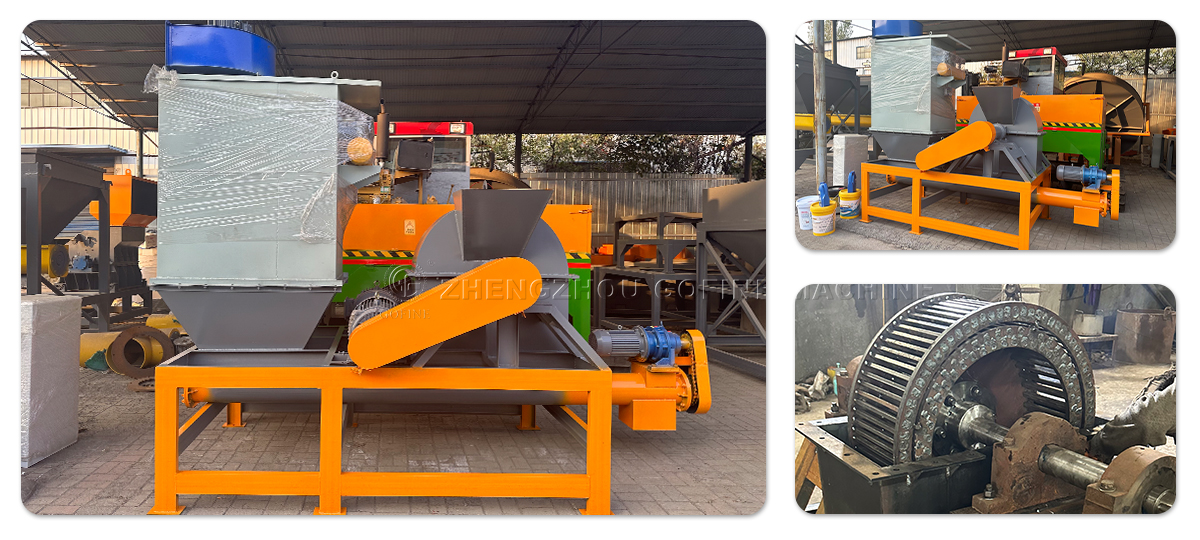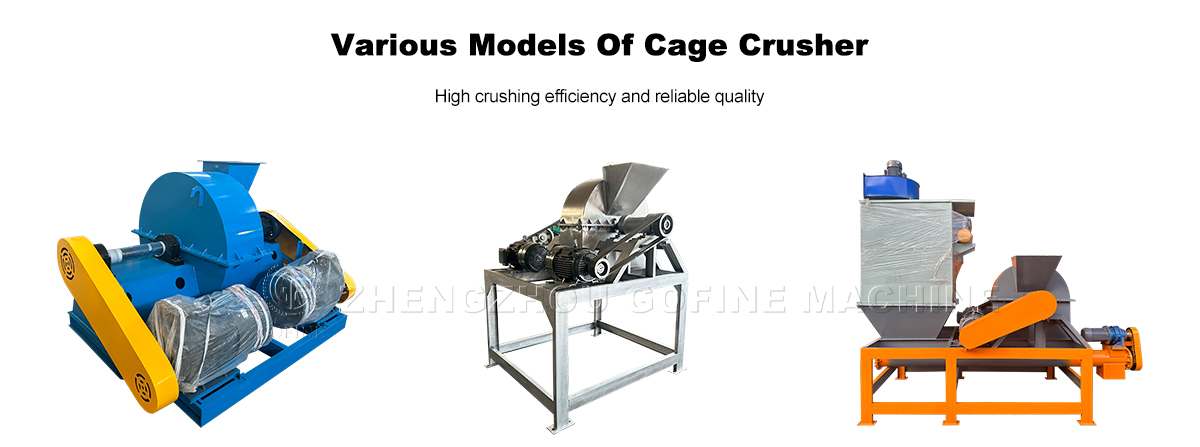Product Overview
The Phosphate Ore Crusher with Dust Removal is a specialized crushing device for mineral-based fertilizer raw materials, engineered to process hard minerals while minimizing environmental impact. It adopts a two-stage crushing process—coarse crushing (jaw crusher) and fine crushing (impact crusher)—to reduce phosphate rock, bentonite, and other minerals from 300mm raw chunks to 0-5mm fine particles, which is critical for uniform nutrient mixing in subsequent fertilizer production steps. The integrated pulse dust collector (filtration area 15㎡) achieves ≥98% dust removal efficiency, complying with global environmental standards such as EU EN 15237 and US EPA Part 63. The machine’s all-steel frame (thickness 12mm) ensures stability during high-load operation, with a service life of 8-10 years under normal use.
Product Features
Dust-Free Operation: The integrated pulse dust collector uses high-efficiency filter cartridges (PTFE-coated) that capture dust particles as small as 0.3μm. The collector’s automatic backwashing function (triggered every 30 minutes) cleans the filter cartridges without stopping the machine, maintaining consistent dust removal performance.
Hard Material Adaptability: Crushes materials with Mohs hardness up to 6.5 (e.g., phosphate rock, bentonite, limestone) into 0-5mm particles. The coarse crushing chamber has a adjustable discharge gap (50-100mm) to control the feed size for the fine crushing chamber, ensuring optimal particle size distribution.
Stable Performance: Dual-shaft design in the fine crushing chamber (each shaft driven by a 45kW motor) with synchronized speed control (1450 rpm) avoids material clogging. A material level sensor in the feeding hopper adjusts the feed rate automatically, preventing overloading and ensuring continuous operation.
Corrosion Resistance: The inner lining of the crushing chamber is made of wear-resistant manganese steel (Mn13) with a thickness of 20mm, which resists corrosion from mineral acids (e.g., phosphoric acid in phosphate rock). The lining is replaceable, reducing maintenance costs and equipment downtime.
Applications
Phosphate fertilizer production lines processing phosphate rock into fine particles for the production of single superphosphate (SSP), diammonium phosphate (DAP), and monoammonium phosphate (MAP).
Bentonite grinding for fertilizer binders—crushed bentonite (2-5mm) is used to improve granule strength in organic and compound fertilizer production, reducing breakage rates during transportation.
Mineral processing plants requiring dust control in fertilizer production, such as those located near residential areas or eco-sensitive zones where dust emissions are strictly regulated.
Multi-purpose fertilizer plants that produce both mineral and organic fertilizers, as the machine can switch between materials with minimal adjustments (e.g., changing the lining for corrosive vs. non-corrosive minerals).


| Model | Feed port size (mm) | Power (kW) | Production capacity (t/h) | Overall dimensions (mm) |
| GFLSJ-600 | 380*320 | 11*2 | 4-6 | 1500*1500*1500 |
GFLSJ-800
| 380*250 | 15*2 | 6-10 | 1500*1400*1500 |
FAQ
Q: Does it need pre-screening of raw materials?
A: Recommended for materials ≤300mm in diameter; larger chunks (>300mm) require pre-crushing with a primary jaw crusher. The manufacturer offers a matching pre-crushing unit for plants handling large raw material batches.
Q: What’s the noise level during operation?
A: ≤85dB (measured 1m from the machine) with a sound insulation cover (optional) that reduces noise by an additional 5-8dB. This meets industrial noise standards (e.g., OSHA 29 CFR 1910.95) for workplace safety.
Q: How to maintain the dust removal system?
A: Clean the filter cartridges every 15 working days (or when differential pressure exceeds 1500 Pa) using compressed air (0.5-0.8 MPa). Replace filter cartridges every 12 months (or 2000 working hours) to ensure dust removal efficiency. The dust collection bin should be emptied daily to prevent overflow.
Q: Can it process other minerals besides phosphate rock and bentonite?
A: Yes, it can crush limestone (for calcium fertilizer), gypsum (for sulfur fertilizer), and potash ore (for potassium fertilizer) with Mohs hardness ≤6.5. A material test is recommended for unknown minerals to confirm compatibility and adjust crushing parameters.

Our services include:
Customized solutions
24-hour professional online consultation
Installation and commissioning
Operation training services
After-sales service
Accessories supply
We are committed to providing customers with high-quality products and all-round support to help you improve production efficiency and product quality.
If you want to know more about fertilizer equipment, please feel free to contact me!


































